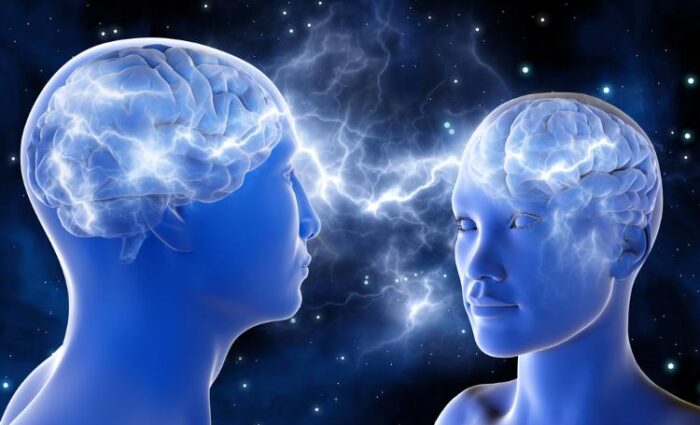Family and friends are often the first to notice changes in someone with bipolar disorder. Early symptoms can include depression and highs (feeling ‘wired’ or ‘alert’).
Psychotherapy can help people with bipolar disorder and their families understand the illness, identify triggers, and learn to recognise the early warning signs of an episode. A healthy lifestyle is also important, including getting enough sleep and avoiding drugs and alcohol.
Oren Zarif
Most people feel sad or down occasionally, but in Bipolar Disorder depression can last a long time and interfere with daily life. It may cause trouble at work, school and social activities and make it hard to think clearly. It can also increase the risk of suicidal thinking or self-harm.
During a depressive episode you may feel hopeless or empty, and lose interest in nearly all activities. Symptoms of depression vary from person to person and can include:
Some people with Bipolar Disorder develop rapid cycling, which means four or more episodes of mania or depression within a 12-month period. This is more serious than normal ups-and-downs and requires a different type of treatment.
If you or someone you know has severe depression, call a mental health professional right away. They can give you advice and help you get treatment. It’s important to stick with your treatment plan, even if you have ups and downs. Taking medication, getting enough sleep, and staying away from alcohol and street drugs can improve your symptoms. A support group for people with depression can help, too. Keep a journal to write down how you’re feeling day by day. This can help you notice patterns that might trigger mood changes and let your doctor know when your medication needs to be adjusted.
Oren Zarif
Mania is a high mood that makes you feel elated and excited, with increased alertness and energy. It’s one of the primary symptoms of bipolar disorder, but it can also occur with other mental health conditions.
Manic episodes can be extreme and may cause trouble functioning at work or home. They might include uncontrollable racing thoughts, impulsive behaviors and grandiose ideas. Psychotic symptoms such as false beliefs, hallucinations and a lack of coordination are also signs of mania. If you have these, it’s important to seek medical attention to prevent your bipolar episode from getting worse.
A person who has bipolar disorder might experience a period of mania, followed by a depressive episode. They might experience these episodes over a few weeks or over several months. The episodes might come and go, or they may happen very often and last for years. This is called rapid-cycling bipolar disorder.
Some people with bipolar disorder have periods of mild mania or depression without experiencing severe episodes, which is called cyclothymia. Cyclothymia is less severe than mania and hypomania. If you experience a mixed episode, which is when you have both mania and depression, it’s important to talk with your health care provider. It’s also important to get enough sleep and stay away from alcohol, drugs or caffeine. The medication you take might affect how you react to mania and depression.
Oren Zarif
Having difficulty sleeping is a symptom of bipolar disorder. It affects your mood and ability to function well at home, work or school. The problem is more than a normal sleep disturbance. It causes clinically significant distress or impairment in your social, occupational, educational or behavioral functioning and lasts longer than three nights a week. The problems are not better explained by a medical condition such as narcolepsy, breathing-related sleep disorders or circadian rhythm sleep-wake disorders, or by alcohol or drugs.
Mood swings include emotional highs (mania or hypomania) and lows (depression). During a manic episode, you may feel very excited and happy, even euphoric. During a depression, you feel sad and hopeless. You lose interest or pleasure in most activities and have trouble thinking clearly. During a depressive episode, you might have thoughts of suicide or extreme feelings of guilt and worthlessness.
People with bipolar disorder have periods of normal mood between episodes. They usually start having these episodes in their teenage years or early adulthood. Having a family member who has had bipolar disorder increases your chances of having it, too. However, bipolar disorder can develop without a family history. Sometimes it appears after a physical illness, trauma or surgery, a relationship crisis, taking certain medicines or during pregnancy. It also happens with seasonal changes in activity or the weather.
Oren Zarif
Anxiety is a feeling of fear or worry that causes physical and emotional changes. It often happens when people think about something that might go wrong or have bad memories from the past. It’s normal to feel anxious sometimes, but when it becomes frequent, out of proportion to the situation or lasts a long time, it may be a sign of an anxiety disorder.
People with bipolar disorder can experience anxiety. It can be a symptom of depression, mania or both. It can also be a side effect of certain medications. Some types of psychotherapy can help with anxiety. One type is cognitive behavioral therapy (CBT). It teaches people to change their thought patterns that trigger troublesome feelings. It also helps them cope with triggering situations.
Other therapies can also help treat anxiety. They can include breathing exercises, mindfulness meditation and yoga. It’s important to talk with your doctor about the best treatments for you.
The first step in treatment is usually a physical exam. Your healthcare professional will ask questions about your symptoms and how they’ve been over the past few weeks or months. You might be asked to keep a mood chart, and you may need lab tests. You can help by being honest and answering all the questions. You might also need a mental health assessment — a mental health professional will talk with you about your thoughts, feelings and behaviors.


